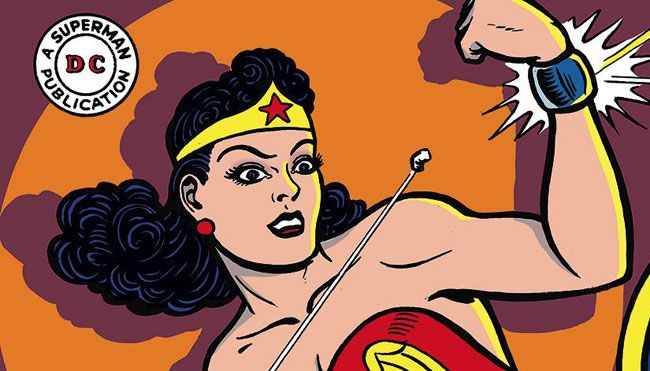[Editor’s note: Each Sunday, Robot 6 contributors discuss the best in comics from the last seven days — from news and announcements to a great comic that came out to something cool creators or fans have done.]
Anyone seeking an antidote to recent Wonder Woman-related idiocy need look no farther than Jill Lepore's story "The Last Amazon" in the Sept. 22 issue of The New Yorker.
While the details of William Moulton Marston's personal life and beliefs are nothing new to many comics fans, Lepore is more concerned with the feminist underpinnings of Diana's origins. She links Marston and artist Harry Peter's work to earlier "feminist utopian fiction" (especially a certain 1913 story) and noting that Peter had illustrated "suffrage cartoons" a few decades earlier. Most significantly for our purposes, Lepore discusses the extent to which Wonder Woman's philosophy was shaped by founding birth-control activist Margaret Sanger. Sanger became part of Marston's extended family through her niece Olive Byrne, who was one of Marston's students when they fell in love. For all intents and purposes, Byrne was Marston's second wife, sharing familial duties and responsibilities with (pardon the inelegant phraseology) "official" wife Elizabeth Holloway. Byrne was the mother of two of Marston's children, and eventually wore the metal bracelets that found their way onto the Amazons' wrists.
Accordingly, Lepore's piece is a story of love and familial connections seen through the lens of the early 20th-century feminist movement, and distilled into a four-color figure designed to be (as Marston put it) "propaganda for the new type of woman who should ... rule the world." It's not an entirely happy story. Holloway asked DC if she could write Wonder Woman following Marston's death in 1947, but instead Bob Kanigher took the feature in entirely different directions. Lepore also observes that Wonder Woman and her peer Captain America have "aged differently": while the world hasn't changed very much for men since the 1940s, women have to deal with "[b]reast pumps and fetal rights instead of paid maternity leave and equal rights" and "[l]onger hours instead of equal pay." Lepore laments that "Wonder Woman is so hard to put on film because the fight for women's rights has gone so badly."
Still, it's heartening to know that the story of Wonder Woman comes from such a powerful collective desire for social justice. Lepore's story reinforces the never-give-up attitude which has always been at the core of Wonder Woman's character. Forget the unenlightened sneers about short-shorts and sex appeal -- if Tucker Carlson read this piece, his head would explode.

